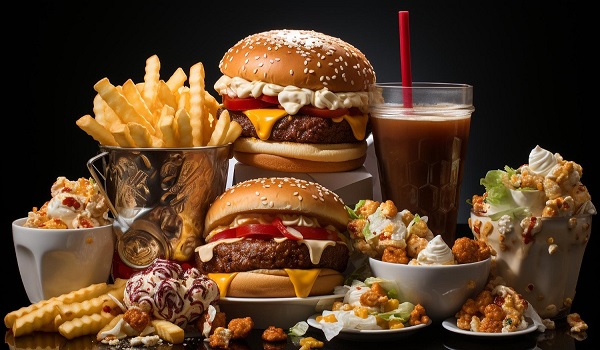Public health advocates are calling on India’s Health Ministry to implement stringent regulations on advertisements promoting high fat, salt, and sugar (HFSS) products, citing their significant contribution to the nation’s escalating non-communicable diseases (NCDs) such as obesity, diabetes, and hypertension, particularly among children.
The Nutrition Advocacy in Public Interest (NAPi) has highlighted data from the Indian Council of Medical Research (ICMR), revealing that 56.4% of India’s total disease burden is now linked to unhealthy diets. In a letter to the Health Ministry, NAPi emphasized that aggressive marketing of HFSS products has led to a shift in dietary habits, displacing traditional, balanced diets with calorie-dense, nutrient-poor foods.
Dr. Arun Gupta, Convener of NAPi, stated, “These foods are engineered to be addictive, and their relentless advertising—especially to children—is fueling a health catastrophe. The current self-regulatory approach has failed. We need legally binding restrictions on HFSS advertising, similar to those on tobacco and alcohol.”
In May 2024, NAPi submitted a proposal to the Press Council of India (PCI) seeking an amendment to the Norms of Journalistic Conduct 2022 to explicitly prohibit advertisements for HFSS and ultra-processed food (UPF) products. The PCI, acknowledging the health implications, forwarded NAPi’s recommendations to the Health Ministry for further action.
Internationally, countries like Chile, Mexico, and the UK have implemented strict front-of-pack warning labels and banned junk food ads targeting children. NAPi urges India to adopt similar measures, including mandatory warning labels on HFSS products, a complete ban on celebrity endorsements and child-targeted ads for such foods, and imposing higher taxation on UPFs to discourage consumption.
The food industry has resisted such moves, arguing that restrictions would hurt businesses and limit consumer choice. However, public health advocates contend that the industry’s profit motives conflict with public health goals, and only stringent government action can reverse this crisis.
With the Supreme Court also taking cognizance of misleading advertisements—particularly those affecting children and vulnerable groups—the pressure on regulators is mounting. The Economic Survey 2024-25 explicitly called for stricter front-of-pack labelling rules and warned that without urgent action, India’s demographic dividend could be undermined by a sick, unproductive population.
As the Health Ministry reviews NAPi’s proposal, public health advocates remain hopeful that India will join the global movement against junk food advertising. Dr. Gupta emphasized, “This isn’t just about regulating ads—it’s about saving lives. Every day of delay means more children developing diabetes, more adults suffering heart attacks. The time to act is now.”


